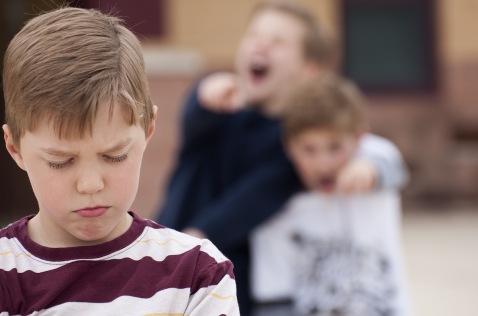
What Leads to Addiction?
Helen Murphy’s research involved interviews with 11 men who were residents of an addiction treatment facility in Ireland. According to Murphy, “The overwhelming result was that childhood experiences were the significant factor in leading them to addiction, and bullying featured hugely.” The participants reported being bullied at home and being bullied in school by both peers and teachers. Some of the participants had particularly shocking experiences, such as one man who was beaten by peers at age 7, and when he was down on the floor, one of the bullies stood on him and pulled out his tooth. It wasn’t all physical bullying, though, with many of the participants reporting verbal abuse and emotional bullying. In most cases, the bullying continued long-term.
Other Research on Bullying and Substance Abuse
Murphy’s study included only a small number of participants, but other studies looking at the same issue have found similar results. One study examined over 78,000 middle and high school students from 16 school districts in a large metropolitan area, finding a clear link between involvement in bullying and substance abuse. Although the results showed increased odds of substance abuse for anybody involved in bullying in any way, either as victims, bullies or a mixture of the two, the rates were actually higher among bullies and those who both bullied others and were bullied themselves. The study specifically focused on the rates of alcohol abuse, marijuana use and cigarettes, but found similar results across different substances. In high school, 13.3 percent of students not involved with bullying had used marijuana, in comparison to 16.6 percent of victims of bullying, 29.2 percent who were both bullies and victims, and 31.7 percent of those who were perpetrators of bullying.
Understanding the Impact of Bullying on Substance Abuse
As Murphy commented in her own study, the emotional pain caused by bullying is a big factor in the development of substance-abusing behavior. Being bullied has serious detrimental effects on self-esteem, and this—as well as the other emotional effects of bullying—in turn makes individuals more likely to abuse substances. One key point from other research worthy of emphasis is that the bullies themselves also abuse substances more frequently. It’s tempting to focus on the victims of bullying as the easiest ones to sympathize with, but the evidence shows that bullies are likely to need additional support too. Bullying isn’t normal behavior, and those who engage in it often have emotional and personal issues of their own. Like with most substance abusers, the choice to use drugs or alcohol is fuelled by personal and emotional issues, and these need to be addressed if progress is to be made in reducing addiction.
Tackling Bullying to Tackle Addiction?
Murphy points out that anti-bullying efforts in schools often stop when the bullying behavior ends, but in fact those who are victims of bullying need long-term support to mitigate the risk of later addiction. Bullying has long-lasting effects, and a lot of one-on-one work needs to be done with the child to help him or her cope with what’s happened. Additionally, help should be offered to the bullies, with the aim of helping them understand why they bully others and helping them cope with their own unpleasant emotions. Finally, for those providing treatment to adults with addiction issues, it’s important to remember that childhood experiences of bullying may be a crucial factor. Helping people cope with those past experiences and work through the unresolved trauma has the potential to pave the way for positive change in the present day.
